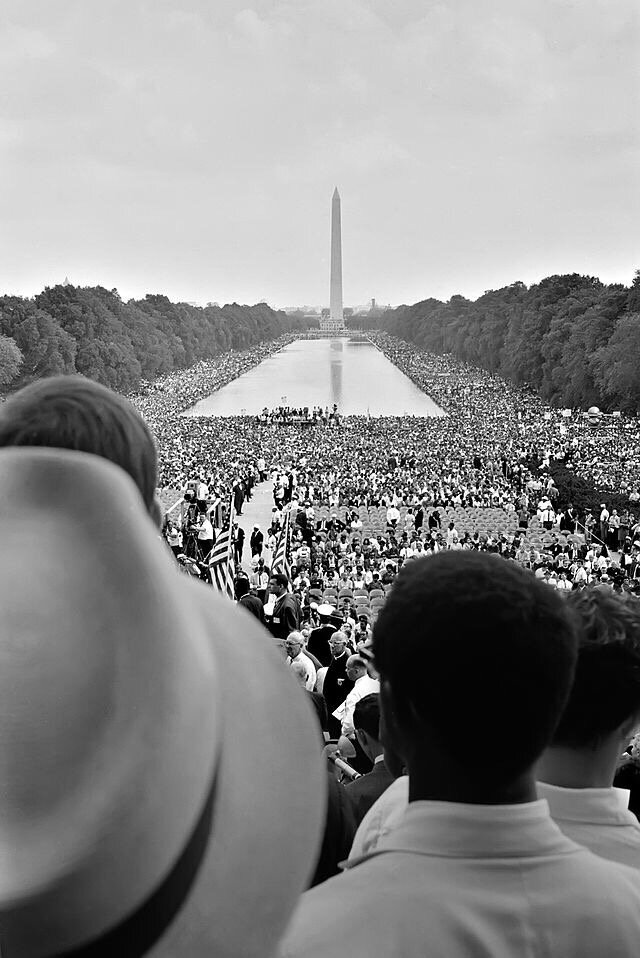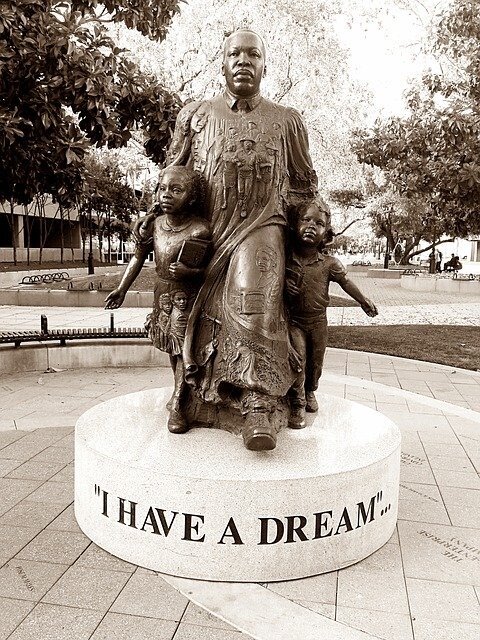The August 1963 March on Washington demanded an end to racial segregation in public schools; meaningful civil rights legislation, including a law prohibiting racial discrimination in employment; protection of civil rights workers from police brutality; a $2 minimum wage for all workers (equivalent to $16.53 in 2018); and self-government for Washington, D.C., which was still governed by congressional committee.
More than 250,000 people of diverse ethnicities participated in the march and the protest. The line of marchers stretched from the steps of the Lincoln Memorial onto the National Mall and around the reflecting pool.
On August 28, Dr. King delivered his now famous "I Have a Dream" speech which is recognized as one of the most important speeches ever made in America. It evolved from other speeches given by Dr. King.
In 1960, he gave a speech called "The Negro and the American Dream" to the National Association for the Advancement of Colored People (NAACP). In his speech, Dr. King addressed the differences between the American dream and reality. He condemned white supremacists whose actions violated the dream, and the federal government for its “betrayal of the cause of justice" because of its failure to protect the constitutional rights of people of color.
In 1961, he delivered several speeches in which her referred to the American Dream as “a dream as yet unfulfilled."
On November 27, 1962, King spoke at Booker T. Washington High School in Rocky Mount, North Carolina where he repeated the "I have a dream" refrain.
In a speech before 25,000 people at Detroit’s Cobo Hall on June 23, 1963 after the 125,000-strong Great Walk to Freedom in Detroit, Dr. King had again referenced his dream for America.
During the days leading up to the March on Washington, Dr. King worked on his speech with the assistance of Stanley Levison and Clarence Benjamin Jones in New York. Mr. Jones maintained that 12 hours before the march was scheduled to begin, Dr. King had not decided what he would actually say because logistical considerations for the march were more important than working on the speech.
In his speech, Dr. King referred to several important documents in American history such as the Declaration of Independence, the Emancipation Proclamation, the United States Constitution and Abraham Lincoln's Gettysburg Address. Near the end of his speech, Mahalia Jackson, a well known African American gospel singer shouted to Dr. King from the crowd, "Tell them about the dream, Martin."
At this point, Dr. King began to improvise and discuss his dream for America. He repeated the phrase "I have a dream" eight times as he spoke of an integrated and unified America. The entire speech which lasted 17 minutes helped change the hearts and minds of Americans.
Dr. King was 34 years old when he made that speech. Five years later he was assassinated in Memphis, Tennessee on April 4, 1968.
His legacy of selfless service to his country and its citizens lives on. His books and speeches have inspired countless activists and his actions have created a movement that must not stop until all people are treated equally.










